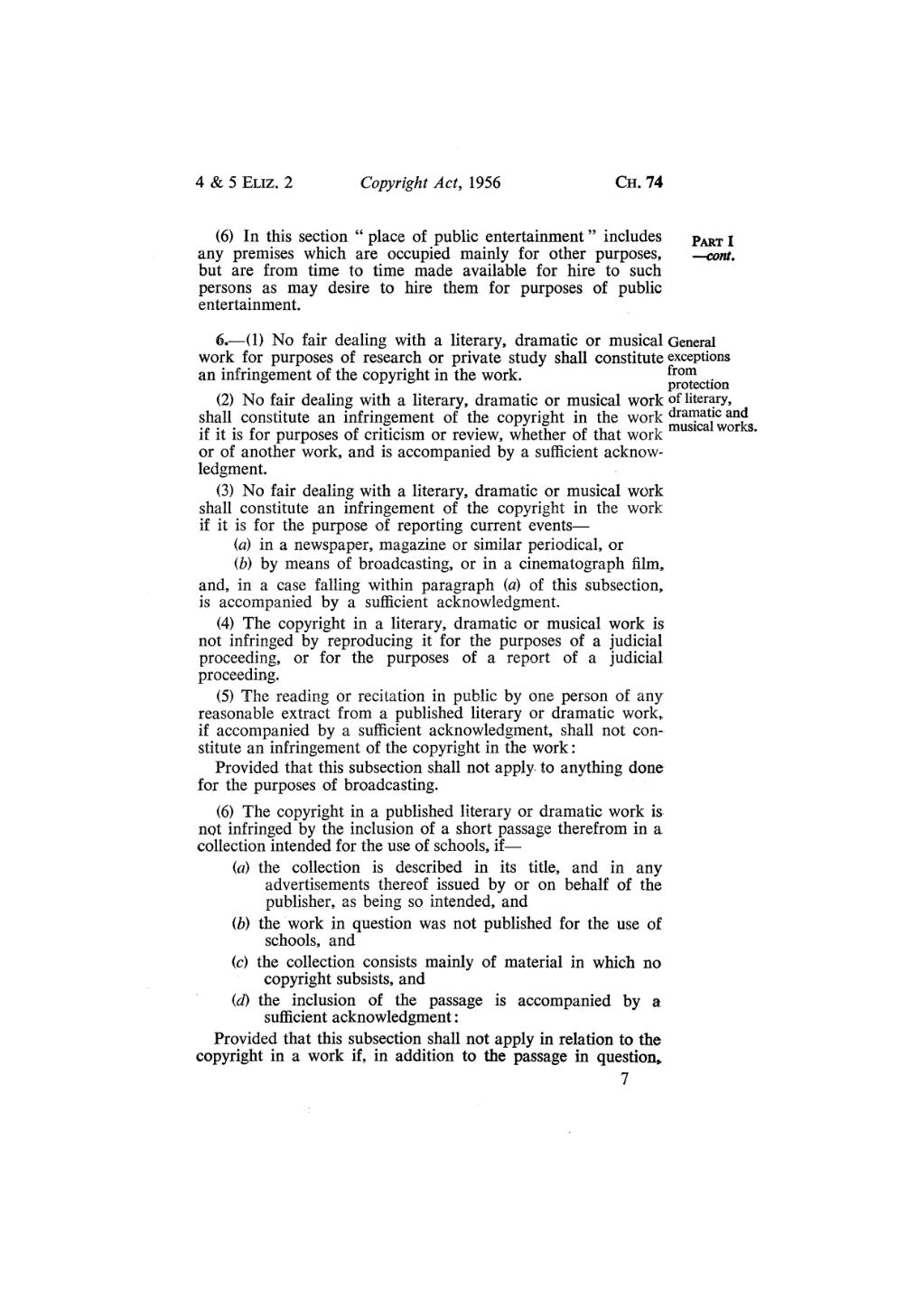Part I
—cont.(6) In this section “place of public entertainment” includes any premises which are occupied mainly for other purposes, but are from time to time made available for hire to such persons as may desire to hire them for purposes of public entertainment.
General
exceptions
from
protection
of literary,
dramatic and
musical works.6.—(1) No fair dealing with a literary, dramatic or musical work for purposes of research or private study shall constitute an infringement of the copyright in the work.
(2) No fair dealing with a literary, dramatic or musical work shall constitute an infringement of the copyright in the work if it is for purposes of criticism or review, whether of that work or of another work, and is accompanied by a sufficient acknowledgment.
(3) No fair dealing with a literary, dramatic or musical work shall constitute an infringement of the copyright in the work if it is for the purpose of reporting current events—
(a) in a newspaper, magazine or similar periodical, or
(b) by means of broadcasting, or in a cinematograph film, and, in a case falling within paragraph (a) of this subsection, is accompanied by a sufficient acknowledgment.
(4) The copyright in a literary, dramatic or musical work is not infringed by reproducing it for the purposes of a judicial proceeding, or for the purposes of a report of a judicial proceeding.
(5) The reading or recitation in public by one person of any reasonable extract from a published literary or dramatic work, if accompanied by a sufficient acknowledgment, shall not constitute an infringement of the copyright in the work:
Provided that this subsection shall not apply to anything done for the purposes of broadcasting.
(6) The copyright in a published literary or dramatic work is not infringed by the inclusion of a short passage therefrom in a collection intended for the use of schools, if—
Provided that this subsection shall not apply in relation to the copyright in a work if, in addition to the passage in question,
